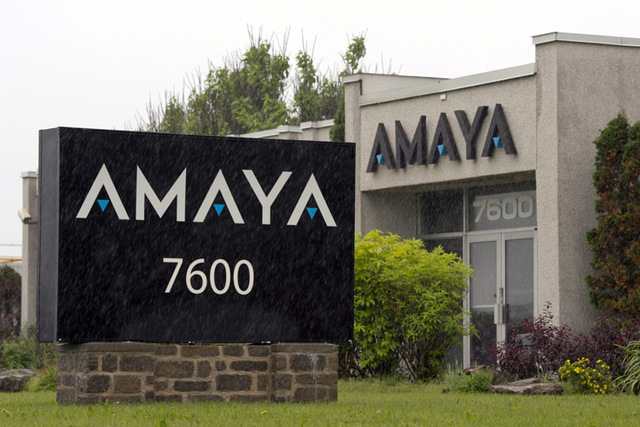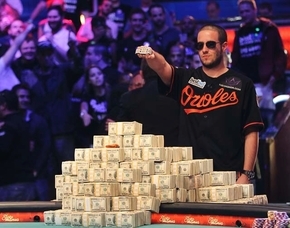California emerging as the next online poker battleground



California’s latest effort to legalize online poker would sideline PokerStars, shut out the racetrack industry, and offer a twist that makes traditional casinos and card rooms part of the game.
Of course, the whole idea could be tossed out with yesterday’s garbage if billionaire casino owner Sheldon Adelson’s effort to kill online gaming makes an eleventh hour resurrection during Congress’ lame duck session.
For now, California is shaping up as the center of the nation’s online gaming debate in 2015.
Lobbyists there expect two more online poker bills to drop next month when the California Legislature returns, with action expected no earlier than late spring.
Nevada’s major casino operators and equipment providers — Caesars Entertainment Corp, MGM Resorts International, Station Casinos, Scientific Games — will be watching California closely. With Nevada down to two online poker websites and New Jersey’s Internet gaming market cratering, the Golden State is the focal point for online poker’s future.
“While online gaming has gotten off to a slow start elsewhere in the U.S., many see California and its huge population of 43 million as providing enough players to make online poker viable,” Fantini Gaming Report wrote last week.
The newest effort comes from Assemblyman Mike Gatto, D-Glendale, who is chairman of the lower house Appropriations Committee, where online gaming measures will be introduced.
“I think we have a proposal that can unite all the various groups that were not previously united,” Gatto told the PokerNews website. California’s mainstream media ignored Gatto’s announcement about the bill.
Tribes that operate some of the state’s largest casinos — Agua Caliente Band of Cahuilla Indians, Pechanga Band of Luiseño Indians, Sycuan Band of the Kumeyaay Nation, Viejas Band of Kumeyaay Indians — are on board with the Gatto measure.
Others are not.
The San Manuel Band of Mission Indians and the Morongo Band of Mission Indians, along with three of the state’s largest card rooms, have a deal with PokerStars, which is owned by the Amaya Gaming Group of Canada. They formed a coalition to push their own online poker bill in California.
In a statement, the coalition called the bill “a rehash of previously unsuccessful proposals.”
Gatto’s bill includes a “bad actor clause,” which eliminates companies that took wagers online from Americans after passage of the Unlawful Internet Gambling Enforcement Act in 2006. That includes PokerStars.
However, a company could be licensed if it offers convincing evidence it won’t “affect the integrity” or “undermine public confidence” in the state’s Internet poker operations.
Chris Grove, who edits the Online Poker Report, speculated that Amaya’s $4.9 billion purchase last summer of PokerStars prompted the new language. The deal removed the European online giant’s troubled previous ownership.
“How wide of an opening that provides and who wanted that opening inserted are both open questions,” Grove said. “But given that it’s a material departure from anything I’ve seen in past bills, it seems like a section worth paying attention to.”
Gatto said another concept in the bill alleviates concerns about money laundering and underage gambling by requiring online players to open accounts at a casino or a card room and limiting withdrawals of a certain amount at a live gaming location or a satellite site.
One California lobbyist called the idea “promising.”
Poker Players Alliance executive director John Pappas didn’t take a stand on the bill, questioned the initial “in person” requirement and wanted feedback from the organization’s membership.
None of these ideas, however, will appease Adelson. Las Vegas Sands Corp.’s chairman is spending millions of dollars in trying to kill online gaming nationally and at the state level. His coalition to fight Internet gaming hired former California Assembly Speaker and ex-San Francisco Mayor Willie Brown to lobby in Sacramento.
In California, cards are in the air and the participants are tossing in their antes.
Gatto is playing the opening hand in a state where Indian casinos produce $7 billion in annual gaming revenue.
His bill would provide the state “significant revenue for merely regulating and legitimizing an industry that Californians already participate in, but send their dollars overseas.”
At some point next year, players will go all-in.
Howard Stutz’s Inside Gaming column appears Wednesdays and Sundays. He can be reached at hstutz@reviewjournal.com or 702-477-3871. Find on Twitter: @howardstutz.
Online poker’s Ultimate Gaming folds after 19 months
EDITORIAL: Congress must reverse foolish online poker policy
WSOP helps Nevada crack $1 million revenue mark for online poker
State gaming regulators recommend plan to link online poker websites
Nevada online poker websites still in their infancy
Fresh start for PokerStars may revitalize N.J. gambling
Steve Wynn compares effort to outlaw online poker to Prohibition
Bottom line in Web poker: Nevada needs compacts with other states












